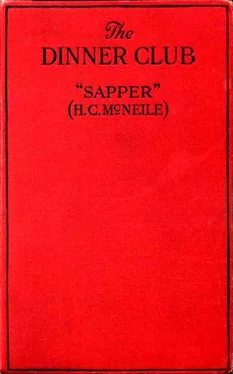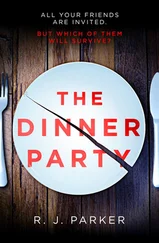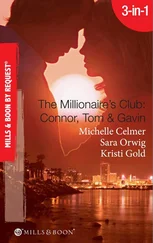“It was then Ruth Granger joined us. Some woman was singing in the reception-room and, for the moment, she was free from her duties as hostess.
“ ‘You seem very serious,’ she said with her grave, sweet smile, holding out her hand to Sir Edward.
“ ‘Miss Seymour is a revolutionary,’ he answered lightly, and I happened at that moment to glance at Ruth. And for the moment she had let the mask slip as she looked at Ned Shoreham’s face. Then it was replaced, but their secret was out, as far as I was concerned, though on matters of affection I am the least observant of mortals. If they weren’t in love with one another, they were as near to it as made no odds. And it gave me a bit of a shock.
“Shoreham was young—young, at any rate, for the Bench—and he was unmarried. And somehow I couldn’t fit Shoreham into the situation of loving another man’s wife. There had never been a breath of scandal that I had heard; if there had been, it would have finished him for good. A judge must be like Cæsar’s wife. And Shoreham, even then, had established a reputation for the most scrupulous observance of the law. His enemies called him cruel and harsh; those who knew him better realised that his apparent harshness was merely a cloak he had wrapped tightly round himself as a guard against a naturally tender heart. I don’t know any man that I can think of who had such an undeviating idea of duty as Shoreham, and without being in the least a prig, such an exalted idea of the responsibilities of his position. And to realise suddenly that he was in love with Ruth Granger, as I say, came as a shock.
“ ‘What was the argument about?’ she said, sitting down beside me.
“ ‘Morality versus the Law,’ chipped in Violet.
“ ‘The individual versus the community,’ amended Sir Edward. ‘Justice—real justice—against sickly sentimentality, with all due deference to you, Miss Seymour. There are hard cases, one knows, but hard cases make bad laws. There’s been far too much lately of men taking matters into their own hands—this so-called Unwritten Law. And it has got to stop.’
“ ‘You would never admit the justification,’ said Ruth slowly.
“ ‘Never—in any circumstances,’ he answered. ‘You have the law—then appeal to the law. Otherwise there occurs chaos.’
“ ‘And what of the cases where the law gives no redress?’ demanded Violet, and even as she spoke Granger came up the stairs with this girl on his arm.
“Ruth Granger rose, deathly white, and gazed speechlessly at her husband’s coarse, sneering face. I don’t think for a moment she fully grasped the immensity of the insult; she was stunned. The footmen were staring open-mouthed; guests passing into the supper-room stopped and smirked. And then it was over; the tension snapped.
“ ‘Have you had any supper, Sir Edward?’ said Ruth calmly, and with her hand on his arm she swept past her husband, completely ignoring both him and the girl, who flushed angrily.
“ ‘I suppose,’ said Violet Seymour to me, as Granger and the girl went into the reception-room, ‘that had Ruth shot that filthy blackguard dead on the stairs, Sir Edward would have piously folded his hands and, in due course, sentenced her to death.’
“And at the moment I certainly sympathised with her point of view.”
The Barrister got up and splashed some soda-water into a glass. Then he continued:
“I won’t weary you with an account of the rest of the reception. You can imagine for yourselves the covert sneers and whisperings. I want to go on two or three hours to the time when the guests had gone, and a white-faced, tight-lipped woman was staring at the dying embers of a fire in her sitting-room, while I stood by the mantelpiece wondering what the devil to do to help. Granger was in his study, where he had retired on the departure of Miss Jones, and I, personally, had seen two bottles of champagne taken to him there by one of the footmen.
“ ‘It’s the end, Bill,’ she said, looking at me suddenly, ‘absolutely the end. I can’t go on—not after to-night. How dared he bring that woman here? How dared he?’
“Violet had been right—the break had come. Ruth Granger was desperate, and there was an expression on her face that it wasn’t good to see. It put the wind up me all right.
“ ‘Go to bed, Ruth,’ I said quietly. ‘There’s no good having a row with Granger to-night; you can say what you want to say to-morrow.’
“And at that moment the door opened and her husband came in. As I said, he was a man who never got drunk, but that night he was unsteady on his legs. He stood by the door, swaying a little and staring at her with a sneer on his face. He was a swine sober; in drink he was—well, words fail. But, by God! you fellows, she got through him and into him until I thought he was going to strike her. I believe that was what she was playing for at the time, because I was there as a witness. But he didn’t, and when she finished flaying him he merely laughed in her face.
“ ‘And what about your own damned lover, my virtuous darling?’ he sneered. ‘What about the upright judge whom you adore—dear, kind Edward Shoreham?’
“It was unexpected; she didn’t know he had guessed—and her face gave her away for a moment. Then she straightened up proudly.
“ ‘Sir Edward Shoreham and I are on terms which an animal of your gross mind couldn’t possibly understand,’ she answered coldly, and he laughed. ‘If you insinuate that he is my lover in the accepted sense of the word, you lie and you know it.’
“Without another word she walked contemptuously by him, and the door closed behind her. And after a moment or two I followed her, leaving him staring moodily at the empty grate. I couldn’t have spoken to him without being rude and, after all, I was under his roof.”
The Barrister leant back in his chair and crossed his legs.
“Now that was the situation,” he continued, “when I went to bed. My room was almost opposite Lady Granger’s, and at the end of the passage, which was a cul-de-sac, was the door leading into Granger’s study. I hadn’t started to undress when I heard him come past my room and go along the passage to his study. And I was still thinking over the situation about ten minutes later when Lady Granger’s door opened. I knew it was hers because I heard her speak to her maid, telling her to go to bed. The girl said ‘Good night,’ and something—I don’t quite know what—made me look through the keyhole of my door. I was feeling uneasy and alarmed; I suppose the scene downstairs had unsettled me. And sure enough, as soon as the maid’s footsteps had died away, I saw through my spy-hole Ruth Granger go down the passage towards her husband’s study. For a moment I hesitated; an outsider’s position is always awkward between husband and wife. But one thing was very certain, those two were in no condition to have another—and this time a private—interview. I opened my door noiselessly and peered out. It struck me that if I heard things getting too heated I should have to intervene. She was just opening the door of his study as I looked along the passage, and then in a flash the whole thing seemed to happen. The door shut behind her; there was a pause of one—perhaps two seconds—and a revolver shot rang out, followed by the sound of a heavy fall. For a moment I was stunned; then I raced along the passage as hard as I could, and flung open the door of the study.
“On the floor lay Henry Granger, doubled up and sprawling, while in the middle of the room stood his wife staring at him speechlessly. At her feet on the carpet was a revolver, an automatic Colt. I stood there by the door staring foolishly, and after a while she spoke.
“ ‘There’s been an accident,’ she whispered. ‘Is he dead?’
Читать дальше












